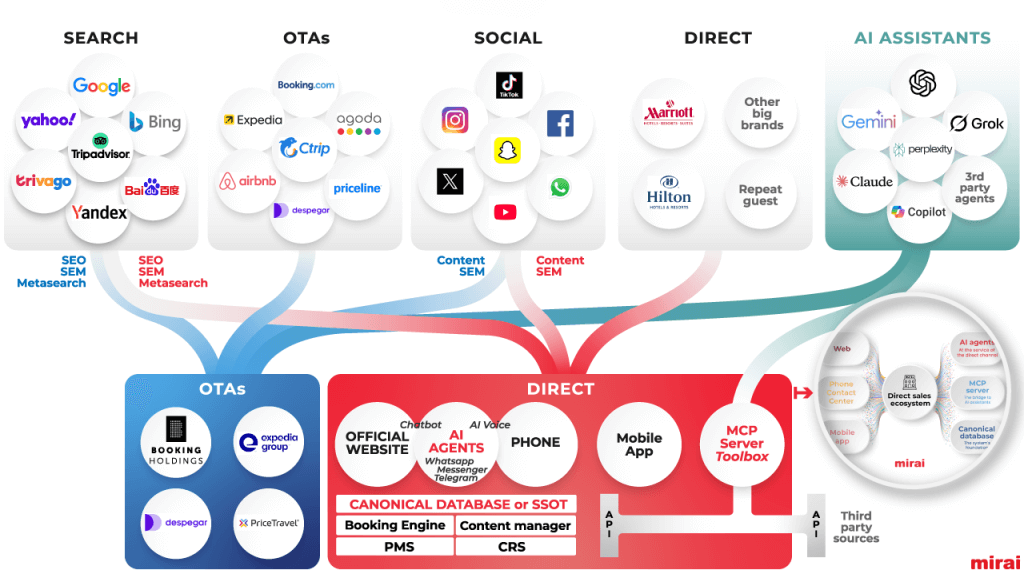In the ever-evolving business landscape, sustainability has steadily transitioned from a mere buzzword to a business priority.
NB: This is an article from Lybra, one of our Expert Partners
This shift is particularly pronounced within the global hospitality industry, where the imperative of sustainability, both as an environmental responsibility and a commercial advantage, is being increasingly recognized.
Subscribe to our weekly newsletter and stay up to date
In the midst of this transition, hotel revenue management and its associated systems have emerged as significant enablers.
Hotel revenue management is a sophisticated, data-driven process that empowers hotels to accurately predict demand and set optimal room rates for each day of the year. By effectively forecasting and responding to fluctuating market dynamics, this approach ensures rooms are sold at the most profitable rate at any given time.
When strategically implemented, these systems can significantly bolster a hotel’s profitability, creating surplus revenue that can be invested in sustainable practices. As a result, a financially secure hotel is better equipped to evolve and cater to the demands of an increasingly sustainability-conscious market.
Here’s a more detailed examination of how revenue management systems can contribute to sustainability:
1. Resource Optimization through Demand Prediction
Accurate demand prediction, a core competency of revenue management systems, allows for a more efficient use of resources. For instance, during periods of anticipated low occupancy, hotels can strategize their operations to reduce energy use, for example by shutting down energy consumption in unused spaces. This lowers the hotel’s carbon footprint and saves costs, which can then be invested in sustainability initiatives.
2. Generating Revenue for Sustainability Initiatives
Revenue management systems facilitate the creation of dynamic pricing strategies that optimize profitability. The additional revenue generated provides the financial flexibility necessary for hotels to invest in a wide range of sustainability practices. These can include everything from installing energy-efficient lighting and renewable energy sources to implementing comprehensive recycling programs and sourcing locally produced food and materials.
3. Attracting Sustainability-Conscious Guests through Premium Pricing
With sustainability becoming an increasingly attractive feature for customers, revenue management systems can help hotels capitalize on this trend. By adjusting pricing strategies to reflect the added value of sustainable practices and combining them with green digital marketing campaigns, hotels can attract customers who are willing to pay a premium for eco-friendly initiatives. The additional revenue can then be reinvested into enhancing these sustainable practices further.
The Bottom Line
In summary, hotel revenue management systems serve as a valuable asset in the journey towards sustainable operations. By accurately predicting demand and setting optimal room rates, these systems ensure strong economic health, enabling hotels to meet and even drive the rising demand for sustainability. The green revenue revolution is carving a path towards a future where sustainability and profitability are not just co-existing, but are complementary goals.
The intersection of sustainability and revenue management marks the future of the hospitality industry.





